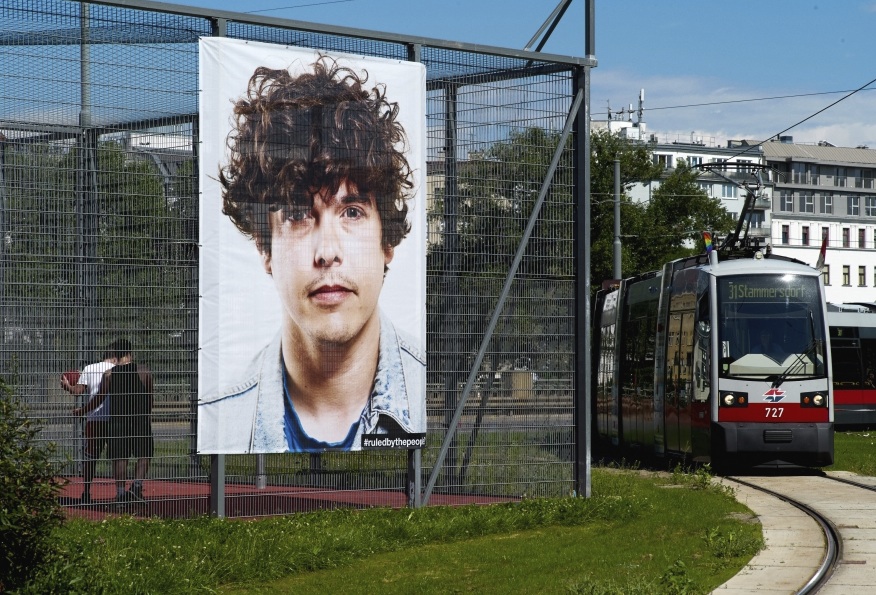#RULEDBYTHEPEOPLE?
Photo project in public space by God’s Entertainment, Peter Mayr & Karl Wratschko
SYNOPSIS:
“History has shown that [...] even ostensible utopias can be realized.” (Amalie Seidel, Member of the National Council 1919-1934)
In 1919, after a long struggle, women in Austria were allowed to vote in elections for the first time. Since then, universal suffrage has seemingly been established for all. Everyone is allowed to vote from a certain age and have a say in Austria’s political developments. However, a glance at the statistics shows that — 100 years after the introduction of women’s suffrage — a large group of people are still excluded from political participation in Austria. No passport, no participation. In Vienna in 2019, this amounts to just about 30% of the people with their primary residence in the city, people who pay their taxes here and are only entitled to vote in local elections.
Is it really democratic if almost 30% of the citizens of Vienna are not allowed to vote in state and federal elections? Does citizenship have to be linked to political participation?
In the project, 52 people who have had their primary residence in Vienna for years and are still not allowed to vote were portrayed. The portraits thus stand for those citizens who do not have the right to vote. On average, the portrayed people have lived in Vienna for 12 years. They belong to more than twenty different nationalities, with one thing in common: Vienna has been the center of their life for years and they want to help shape their surroundings politically. 100 years after the introduction of women’s suffrage, the question arises once again: Do we want a society with “second-class citizens” who, with the exception of many obligations, have hardly any political rights? How can the utopia of democracy for all become a reality?
With the support of the Cultural Department of the City of Vienna - MA7 and SHIFT III - Basis Kultur Wien
Photo: Peter Mayr
